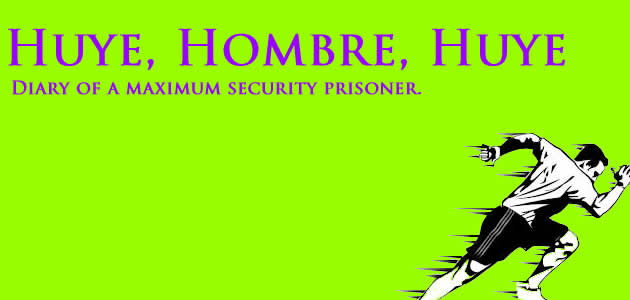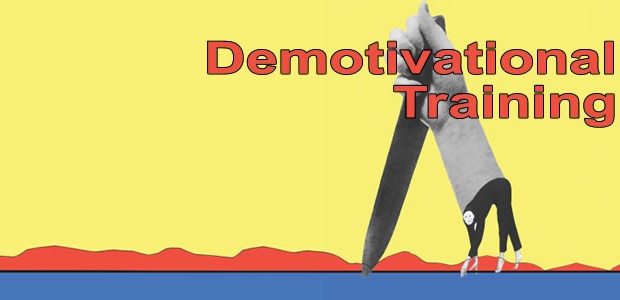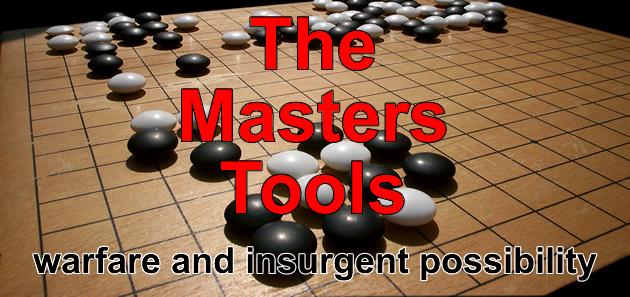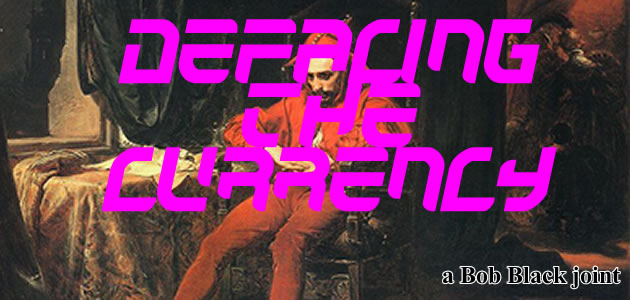Nov
8
2014
Huye, Hombre, Huye (Run, Man, Run) is the autobiography of Xosé Tarrío González. His story travels from the boarding school to the reformatory and then to prison. Due to additional punishments, Xosé was never released from prison, and instead spent the rest of his life fighting desperately to escape by any means necessary. This is the first-hand account of one man’s refusal to accept the legitimacy of the privileged’s judgement of the less privileged, a story of collective struggle against an inhumane system, and of the limitless depths that those in power will sink to when challenged. It is the powerful story of an unbreakable spirit.
(This) is the life of a man who survives in subhuman conditions not far from us and who, in these circumstances, has been able to compose an honest and stark testimony about the reality of imprisonment today… I do not foresee a more human horizon, or a more respectful criminal or prison policy, simply because prison is the ultimate container for a quite specific political-economic project. In the context of a State that is abandoning many of its former tasks, of the privatization of important public services, the precarization of the labor market, and economic globalization, etc., I don’t think that there are many spaces left where we could discuss overcoming or even restricting the use of incarceration. This does not mean paralysis or doing nothing, but the other way around: from the highest skepticism a “culture of resistance” can begin, one that keeps critical thinking alive.
-From the Prologue by Iñaki Rivera Beiras
Authored by Xosé Tarrío González.
Imprint: LBC Books
Check it out at Little Black Cart

no comments | tags: autobiography, prison, spain | posted in Books
Nov
8
2014
For an audience that loves art and is familiar with the Situationist International, Cruel Hospice (an imprint of LBC Books) is 80+ pages of stunning pop visuals colliding with harsh political definitions. Included are definitions of air, authentic, and anarchist (to name but a few).
Faith: The unshakable belief that God encourages commerce
Criminal: Believes she is alone in her despair and therefore sees only an individual solution to a universal problem – how to live without working.
This is the second book from the Cruel Hospice imprint. The first was a post-situationist set of essays against work and the logic of the management of humans vis a via work. Demotivational Training does this in the ironic tone of exactly such human resources manuals.
Isaac Cronin is one of the founders of the Situationist movement in the United States in the late 60s. As co-creator of the Council for the Eruption of the Marvelous, and a long time provoceteur, he is the author, editor, and translator of eight books of social criticism and hundreds of pamphlets, texts, posters and subversions on dozens of topics ranging from nihilism to the Weather Underground to psycho-geography. His feature length video documentary, Call it Sleep, has been shown at museums and theaters around the world.
Tyler Spangler is a digital collagist with a broad-ranging style and eclectic influences ranging from Godard to Man Ray to trandtional Pop Art. His images have appeared in dozens of magazines around the world, and have been exhibited in galleries in London, Rome, and Los Angeles. Tyler is a graphic designer for skate and surfboards, textiles, film and music collateral.
Authored by Isaac Cronin, Tyler Spangler.
Imprint: Cruel Hospice
Check it out at Little Black Cart

no comments | tags: art, devils dictionary, situationist | posted in Books
Nov
8
2014
The Black Bloc Papers is a set of documents preserved from the anti-globalization movement from 1999 2001. It serves as a punctuated beginning by way of calls to action, manifestos, and action reports of a new era of anarchist organizing and activity. Rather than organizing to last or to win the black bloc enters from stage left as a disruption; to global capital, to protest politics as usual, as ephemeral and ubiquitous.
Suddenly anarchy and the black bloc were front page news in the US and soon would become synonymous with each other. I, like others around the world, watched it on the nascent Indymedia, and was inspired. The raw emotion and energy was a rude awakening for Power and a clarion for the disaffected amongst us. We were breaking free of the confines of polite protest, and were never going to go back.
-scott crow From the Forward
The Black Bloc Papers is intended for those who would like to understand the vigorous protest politics of anarchism, the tactic of the black bloc as practiced over a decade ago, and as a historical signpost reminding us of how far we’ve come and how far we have left to go.
LBC Books is publishing this title in the spirit of anarchist attempts at publishing this document over the past decade. We have used the work of Breaking Glass Press, the Alternative Media Project (Infoshop.org), and the Green Mountain Anarchist Collective in this publication.
Edited by David Van Deusen & Xavier Massot.
Imprint: LBC Books
Check it out at Little Black Cart

no comments | posted in Books
Nov
8
2014
In a period of global unrest that topples governments and calls into question the capitalist system, no one has been more demonized by both the State and the official Left than the anarchists and their use of the ‘black bloc.’ Yet, from the streets of Egypt to the plazas of Brazil, the tactic is growing in popularity. From behind the balaclava, Doug Gilbert discusses riots and revolt from the teargas filled streets of Oakland, California during the Occupy movement to Phoenix, Arizona facing down Neo-Nazi skinheads. Discussing violence, social change, and organization at length, Gilbert examines why many young people are turning away from the organizations which have historically sold-out the working class—and starting a riot of their own.
Authored by Doug Gilbert.
Imprint: Institute for Experimental Freedom (IEF)
Check it out at Little Black Cart

no comments | tags: attack, struggle | posted in Books
Jul
1
2014
Today the managers want nothing less than to make every employee a situationist, enjoining them to be spontaneous, creative, autonomous, freewheeling, unattached, and greeting the precariousness of their lives with open arms. Trying to outdo this would be absurd. On the other hand, limiting the critique to the domain of the negative, without prescribing a specific goal, is to show great optimism stemming from the hypotheses (obviously unproven) that most people have within them all the energy necessary for their autonomy without there being the need to add any.
Authored by Guillaume Paoli.
Imprint: Cruel Hospice
Check it out at Little Black Cart

1 comment | posted in Books
Jun
29
2014
Tiqqun and The Invisible Committee, while clearly informed by academic discourses (such as traditional metaphysics, theories of sovereignty, the study of biopolitics and disciplinary practices, etc), are staunchly defiant of the academy’s monopoly over political thought. They are at once an appropriation, recontextualization, and a liberation of certain theoretical concepts from the tautological trap of academia and their subsequent projection into the world. In this way, Tiqqun and The Invisible Committee represent a critical synthesis of theoretical spaces as disparate and diverse as anarchist thought, Italian autonomist-Marxism from the 1970s, French ultragauche communism, the squatter’s movement in Europe in the 1980s, and the Situationist International. These essays are a dialogue with Tiqqun’s logic and their successes (and failures) as a project.
Authored by Alden Wood who is also the author of Crimethought.
Imprint: Repartee
Check it out at Little Black Cart

no comments | posted in Books
Jan
4
2014
Tactical dynamics are amoral, arational, particular dynamics of conflict, and effectiveness is the accomplishment of objectives within this dynamic of profound uncertainty and resistance. Fusing ideas and action together is always already impossible: analysis generates a space that becomes inert while tactical dynamics are always in flux in all moments, making both strategy and tactics impossible to think in direct and total ways. The most we can do is try to make sense of these dynamics in increasingly effective ways, ways that facilitate the achievement of material objectives.
Imprint: Repartee
Check it out at Little Black Cart

no comments | tags: attack, strategy, tactics, tom nomad | posted in Books
Jan
4
2014
In clear, impassioned prose, Enrico Manicardi analyzes the evils of our age from their genesis. This or that economic, technological or cultural model is not to blame for our current crisis; the blame lies with economics, technology and culture as such. It is the ideology of fear that makes us afraid. It is the mentality of domination that jeopardizes all of our relationships. In short, the problem is civilization.
Through its oppressive classes, values and processes that pervade everyone’s life, civilization domesticates us, weakens our perceptiveness and distances us from the living world. We must radically change our way of thinking, feeling and behaving before it’s too late–we must dam the flood of devitalization that is washing over us, and return to our wilder natures, both inside and outside ourselves. Manicardi’s appeal is crystal clear: if we are to survive we must begin to search inside ourselves, not to celebrate the distant past as if it were a cult, but to return to ourselves, to grip life with our own two hands, and build upon that earlier ecocentric conscience which once held the place of the egocentric conscience now leading us astray.
Enrico Manicardi was born in 1966 and is a member of La Scintilla, the Society for Libertarian Culture of Modena. A lawyer and founder of the antiauthoritarian media project “Infection,” he has also played guitar and written music for an eponymous band since the 1980s. His lifelong wish has been to live in a free, radically off-kilter, ecologically sound world, one characterized by warm, spontaneous, non-hierarchical relationships rather than those consecrated by the cult of technology. Troubled by the way people have succumbed to a civilization that estranges, domesticates and regulates everything and everyone, he continues to protest against the modern world’s project to enslave us. This book augurs the rise of an increasingly harmonious chorus loud enough to put an end to that project.
Translated by Will Schutt and Alberto Prunetti edited by Alice Parman and with a preface by John Zerzan.
Imprint: Green Anarchy
Check it out at Little Black Cart

no comments | tags: anarcho-primitivism, anti-civilization, Enrico Manicardi, green anarchy, primitivism | posted in Books
Dec
6
2013
“Why”ing not in order to get ready-made responses to daily media bombardements, and media intellectualisms, Somnambulist Situationists aim at miraculating a sleepwalker’s strategy to re-consider the Situationist Internationalist’s texts towards an un-negotiable, short-circuiting, non-identitarian, and especially a critically pervert position.
How can we hypnotise the Father, or Hegel,? Or better, how can we maintain a drowsy-Hegel not quite awake yet? What if the father is hypnotised so that he can be made to confess his trauma? Isn’t it timely to radicalise détournament as a way of producing the un-Gestalt of a WHATEVER-IMAGE?
How can we hypnotise the Father or Freud so that psychoanalysis itself is forced to lead the life of a somnambulist? Imagine somnambulist “citizens” who cross the borders for schizo incesting towards a homosexual-effusion… bachelor-machines.
The undecidable is what lies between one’s eyelids.
imprint: Pistols Drawn
Check it out at Little Black Cart

no comments | posted in Books
Jul
1
2013
Bob Black’s first book in sixteen years.
This is not because Bob has stopped writing, or even that the audience for his work has disappeared. Quite the opposite. It’s been sixteen years since Anarchy After Leftism because it has taken that long for the anarchist space to catch up to him. This 350+ page collection of formerly and freshly published articles also includes a lengthy denouncement of Noam Chomsky as (not) anarchist intellectual, and engagements with democracy, technology,anarchism, and the law. Bob Black is an obsessed, intelligent, and hostile thinker whose writings are, if not the most, then among the most clear contemporary anarchist thinking. His passionate denunciations against the Left are a compelling call to arms. He names names, understands decades of political context, and has the desire to build a rational case for new and experienced readers. That he does it well, especially the naming of names, is why he is despised. Those who despise him confuse the man with the idea, but the idea is unassailable. On the one hand there is anarchism, a leftist, historical-above-all-else, ideology. On the other is anarchy, a life lived autonomously and cooperatively.
—from the introduction by Aragorn!

Publisher: LBC Books
Date: February 2013
348 pages, Digest
$12
Purchase at Little Black Cart
no comments | tags: bob black, critique, post-left | posted in Books









